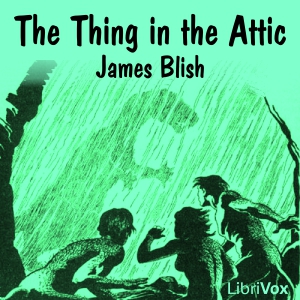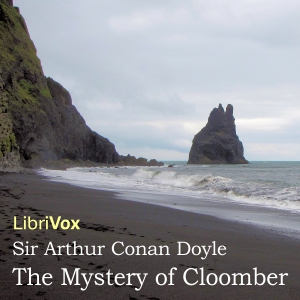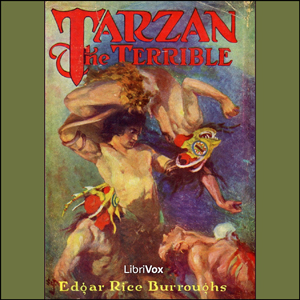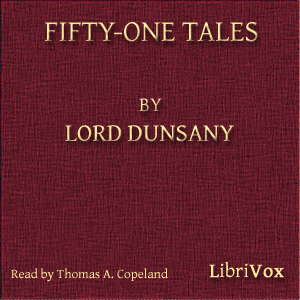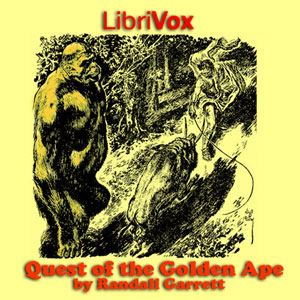The story starts with a comet that touches the Earth in its flight and collects a few small chunks of it. Some forty people of various nations and ages are condemned to a two-year-long journey on the comet. They form a mini-society and cope with the hostile environment of the comet (mostly the cold). The size of the 'comet' is about 2300 kilometers in diameter - far larger than any comet or asteroid that actually exists. (Summary by Wikipedia)
43 episodes
Eine märchenhafte Geisternovelle.
Zur Konfirmation hat Franz Arbogast, an einem Ostersonntag geboren, ein geheimnisvolles Büchlein mit Lebensregeln für Osterkinder bekommen. Jahre später ist er als Goldschmiedsgeselle unterwegs, um kostbare Steine für einen Krone einzukaufen, doch all sein Geld wird ihm auf rätselhafte Weise gestohlen. Noch rätselhafter aber ist, dass sein Büchlein den Verlust voraussagt und ihm rät, dem Verlorenen nicht hinterher zu jagen, da er es bald von selbst wiederfinden wird. Franz bleibt also in der Gegend und kommt zu einem Schloss, bei dem der Sage nach ein Geist sein Wesen treibt, der nur von einem Osterkind erlöst werden kann. Er findet bei den Verwaltern des Schlosses gastliche Aufnahme, und es begegnen ihm hier ganz wundersame Dinge.
(Zusammenfassung von Hokuspokus)
7 episodes

Do you believe in magic? Caroline, Charles and Charlotte do, and nothing that happens during their summer holiday at their great uncle's house does anything to diminish that belief. There the Three C.'s find a wonderful garden and some very old books, resulting in escapades which do not necessarily please the grown-ups.E. Nesbit, as usual, transports us back to the hazy summer days of a well-to-do Edwardian childhood, liberally spiced with magic, humour and lessons learned.Published exactly 100 years ago, this is one of her least-known children's books, out of print for many years, and with no text available online at the time of recording. Yes, it's dated. Yes, it's politically incorrect. But it is delightful nonetheless. As Gore Vidal once wrote: "...though a reading of E. Nesbit is hardly going to change the pattern of a nation, there is some evidence that the child who reads her will never be quite the same again, and that is probably a good thing." (Introduction by Ruth Golding)
No online text is currently available. The reader read from her own copy of the 1911 1st edition.
23 episodes
French colonists on a planet ruled by reptiles and amphibians are forced to wear living “skins” that subdue aggression and enforce vegetarianism. As children, Rastignac and his reptile friend Mapfarity force themselves to become carnivores and begin a protein fueled journey that causes Rastignac to develop a Philosophy of Violence. When a spaceship from Earth crashes in the ocean, Rastignac and company must put their philosophy to the test. - Rastignac The Devil was first published in the May 1954 issue of Fantastic Universe Magazine. (Summary by Gregg Margarite)
2 episodes
This is a collection of the following short stories: The Ninth Vibration -- The Interpreter : A Romance of the East -- The Incomparable Lady : A Story of China with a Moral -- The Hatred of the Queen : A Story of Burma -- Fire of Beauty -- The Building of the Taj Majal -- How Great is the Glory of Kwannon! -- The Round-Faced Beauty. Many of them are romantic, some of them are fantasy and others are occult fiction.(Introduction by Linda Andrus)
13 episodes
Professor Pierre Aronnax is an academic whose thirst for knowledge carries him out of his ivory tower and on the trail of a mysterious sea beast. His curiosity at last is satiated when he finds himself in the belly of the beast-- that is, on board the incredible submarine the Nautilus, courtesy of its mysterious pilot Captain Nemo and in the company of his servant Conseil and sailor Ned Land. (Introduction by Piper Hale)
48 episodes
Conan the Cimmerian pursues the beautiful and deadly pirate Valeria after she kills a Stygian only to find himself cornered by a dragon. Apparently this dragon doesn’t know who he’s messing with. The pair then encounters the city of Xuchotl with its warring factions and ancient secrets. Swordplay and sorcery ensue. – Red Nails is Howard’s final Conan story and was published in the July, August, September and October 1936 issues of Weird Tales magazine (Summary by Gregg Margarite)
5 episodes
The Flying Inn is a novel first published in 1914 by G.K. Chesterton. It is set in a future England where a bizarre form of "Progressive" Islam has triumphed and largely dominates the political and social life of the country. Because of this, alcohol sales are effectively prohibited. The plot centers around the adventures of Humphrey Pump and Captain Patrick Dalroy, who roam the country in their cart with a barrel of rum in an attempt to evade Prohibition, exploiting loopholes in the law to temporarily prevent the police taking action against them. (Summary from Wikipedia)
25 episodes
The Marble Faun is Hawthorne's most unusual romance. Writing on the eve of the American Civil War, Hawthorne set his story in a fantastical Italy. The romance mixes elements of a fable, pastoral, Gothic novel, and travel guide. In the spring of 1858, Hawthorne was inspired to write his romance when he saw the Faun of Praxiteles in a Roman sculpture gallery. The theme, characteristic of Hawthorne, is guilt and the Fall of Man. The four main characters are Miriam, a beautiful painter who is compared to Eve, Beatrice Cenci, Lady Macbeth, Judith, and Cleopatra, and is being pursued by a mysterious, threatening Model; Hilda, an innocent copyist who is compared to the Virgin Mary; Kenyon, a sculptor, who represents rationalist humanism; and Donatello, the Count of Monti Beni, who is compared to Adam, resembles the Faun of Praxiteles, and is probably only half human. (Summary by Wikipedia)
50 episodes
Deeper questions of life and death, and of God’s relationship to man, are explored in this collection of “dreams” by a noted English novelist and literary critic. A man takes an uncertain step into the next world as his life ends – Defendants at the Last Judgment hurl their own accusations at the Judge – An angel arrives on Christmas Eve to guide one soul through a night of despair and doubt – Flowers in a garden contemplate their own mortality – What would it mean if the world renounced Christ, or God took Christ away from the world? – And in a world of the future, pleasure and luxury are pursued … and children are nowhere to be found. (Introduction by D. Leeson)
11 episodes

No ordinary sailor's tale, this. Based allegedly on the real experiences of Silas Fordred, Master Mariner of Hythe, this is a story of shipwreck on an uncharted island and his supernatural adventures there with a witch, a hairy man, and various devilish devices and traps. The author, Kinross, adds an appendix purporting to explain the marvels which Fordred encountered.Kinross claims to have stolen the sailor's original account from Hythe Town Hall while helping the Town Clerk to sort newly discovered old papers. This is credible, as it is well-known that there were many such documents rescued from destruction in the late nineteenth century. The names of Fordred and his shipmate Snoad are also old-established Hythe families. However, even if Fordred's account is mentioned in the annals of Hythe Borough, it is impossible to know how much was invented by Kinross. "Believe or doubt!" the author says. Much as I would like to believe, I know which way I incline. (Introduction by Ruth Golding)
8 episodes
Vor dem Hintergrund der Oper "Othello" entwickelt Hauff seine Geschichte über einen Mord, einen Geist und eine verbotene Liebe.
Ist eine Verkettung unglücklicher Zufälle oder ein Fluch die Ursache der tragischen Ereignisse? Die Erzählung bietet beide Erklärungen, doch am Ende muss der Leser selbst entscheiden. (Zusammenfassung von Hokuspokus)
5 episodes
Honath the Pursemaker is a heretic. He doesn’t believe the stories in the Book of Laws which claims giants created his tree-dwelling race. He makes his opinion known and is banished with his infidel friends to the floor of the jungle where dangers abound. Perhaps he’ll find some truth down there. – The Thing in the Attic is one of Blish’s Pantropy tales and was first published in the July, 1954 edition of If, Worlds of Science Fiction magazine. (Summary by Gregg Margarite)
2 episodes
What happens when a not-so-lucky man happens upon a brass bottle releases the djinni caught within? Misunderstanding, culture shock, hilarity, among other things. Will the well-intentioned djinni help his new master? Or will he makes things even worse? (Summary by Guero)
19 episodes
Robin Hood is a heroic outlaw in English folklore. A highly skilled archer and swordsman, he is known for "robbing from the rich and giving to the poor", assisted by a group of fellow outlaws known as his "Merry Men". Traditionally Robin Hood and his men are depicted wearing Lincoln green clothes. The origin of the legend is claimed by some to have stemmed from actual outlaws, or from ballads or tales of outlaws. (Introduction by Wikipedia)
24 episodes
The novel is a humorous oriental romance and allegory written in the style of the Arabian Nights. Like its model, it includes a number of stories within the story, along with poetic asides. (Summary by Wikipedia.)
“The variety of scenes and images, the untiring evolution of plot, the kaleidoscopic shifting of harmonious colours, all these seem of the very essence of Arabia, and to coil directly from some bottle of a genie. Ah! what a bottle!” -Edmund Gosse in Gossip in a Library
31 episodes
Eines Tages erblickt der Student Anselmus in einem Holunderbusch die blauen Augen einer kleinen Schlange und verliebt sich auf der Stelle in sie. Die Tochter seines Freundes Konrektor Paulmann, Veronika, wiederum ist in ihn verliebt. Sie hofft, er werde Karriere machen und ihr ein Leben in Luxus bieten. Im Augenblick aber ist Anselmus mittellos und tritt deshalb eine Stelle als Kopierer alter Schriften bei dem Geheimen Archivarius Lindhorst, einem verschrobenen Alchemisten und Zauberer an. Er erfährt, dass die kleine Schlage niemand anders ist als des Archivarius Lindhost Tochter Serpentina. Während seiner Arbeit in Lindhorsts Haus begegnen ihm wunderbare Dinge. Doch auch Veronika hat ihn noch nicht aufgegeben. (Zusammenfassung von Hokuspokus)
12 episodes
The Throg task force struck the Terran survey camp a few minutes after dawn, without warning, and with a deadly precision which argued that the aliens had fully reconnoitered and prepared that attack. Eye-searing lances of energy lashed back and forth across the base with methodical accuracy. And a single cowering witness, flattened on a ledge in the heights above, knew that when the last of those yellow-red bolts fell, nothing human would be left alive down there. And so Shann Lantee, most menial of the Terrans attached to the camp on the planet Warlock, was left alone and weaponless in the strange, hostile world, the human prey of the aliens from space and the aliens on the ground alike. (Introduction by from the Gutenberg text)
18 episodes
A collection of nine enchanting short stories filled with curious beasts and unexpected endings. Included are The Bee-Man of Orn; The Griffin and the Minor Canon; Old Pipes and the Dryad; The Queen's Museum; Christmas Before Last: Or, The Fruit of the Fragile Palm; Prince Hassak's March; The Battle of the Third Cousins; The Banished King; and The Philopena(summary by Gryphon Perkins)
9 episodes

The Mysteries of Paris (French: Les Mystères de Paris) is a novel by Eugène Sue which was published serially in Journal des débats from June 19, 1842 until October 15, 1843. Les Mystères de Paris singlehandedly increased the circulation of Journal des débats. There has been lots of talk on the origins of the French novel of the 19th century: Stendhal, Balzac, Dumas, Gautier, Sand or Hugo. One often forgets Eugène Sue. Still, The Mysteries of Paris occupies a unique space in the birth of this literary genre: it entranced thousands of readers for more than a year (even illiterates who had episodes read to them) and was also a major work in the formation of a certain form of social consciousness. One often hears that the 1848 revolution was partly born in the pages of the Mysteries of Paris or, more appropriately, that the Mysteries of Paris helped create a climate which allowed the 1848 revolution to occur.The hero of the novel is the mysterious and distinguished Rodolphe, who is really the Grand Duke of Gérolstein (a fictional country) but is disguised as a Parisian worker. Rodolphe can speak in argot, is extremely strong and a good fighter. Yet he also shows great compassion for the lower classes, good judgment, and a brilliant mind. He can navigate all layers of society in order to understand their problems, and to understand how the different social classes are linked.Rodolphe is accompanied by his friends Sir Walter Murph, an Englishman, and David, a gifted black doctor, formerly a slave.The first figures they meet are Le Chourineur and La Goualeuse. Rodolphe saves La Goualeuse from Le Chourineur's brutality, and saves Le Chourineur from himself, knowing that the man still has some good in him. La Goualeuse is a prostitute, and Le Chourineur is a former butcher who has served 15 years in prison for murder. Both characters are grateful for Rodolphe's assistance, as are many other characters in the novel.
28 episodes
This novel is written by the author of, among other novels, the Stories of Sherlock Holmes. It is narrated by John Fothergill West, who tries to discover why the tenant of Cloomber Hall, General Heatherstone, is nervous to the point of being paranoid. Why are his fears becoming stronger every year at the fifth of October? And why doesn't he let his children leave home? This is a great mystery novel with a sharp twist at the end. (Summary by Wikipedia and Stav Nisser)
16 episodes
In the previous novel, during the early days of World War I, Tarzan discovered that his wife Jane was not killed in a fire set by German troops, but was in fact alive. In this novel two months have gone by and Tarzan is continuing to search for Jane. He has tracked her to a hidden valley called Pal-ul-don, which means "Land of Men." In Pal-ul-don Tarzan finds a real Jurassic Park filled with dinosaurs, notably the savageTriceratops-like Gryfs, which unlike their prehistoric counterparts are carnivorous. The lost valley is also home to two different races of tailed human-looking creatures, the Ho-don (hairless and white skinned) and the Waz-don (hairy and black-skinned). Tarzan befriends Ta-den, a Ho-don warrior, and Om-at, the Waz-don chief of the tribe of Kor-ul-ja. In this new world he becomes a captive but so impresses his captors with his accomplishments and skills that they name him Tarzan-Jad-Guru (Tarzan the Terrible), which is the name of the novel (Introduction by Wikipedia)
25 episodes
The experiences in public school, Sandhurst and military life in India of Major George Cotter together with his adventures in the dream world he discovers and frequents. (Summary by Liam Neely)
4 episodes
Three monkey brothers, Thumb, Thimble, and Nod, are Mulla-mulgars or royal monkeys. As she dies, their mother gives them the enchanted Wonderstone for protection, and tells them to follow their father. They embark on a journey of fantastical adventure to find their father, who left years earlier in search of the kingdom of his brother, the Prince of the Valleys of Tishnar, promising to return for them after he had found the way. (Summary by A. Gramour)
23 episodes

The Ghost Sonata (Spöksonaten) is a play in three acts by Swedish playwright August Strindberg. Written in 1907, it was first produced at Strindberg's Intimate Theatre in Stockholm on 21 January 1908... The Ghost Sonata is a key text in the development of modernist drama and a vivid example of a chamber play. In it, Strindberg creates a world in which ghosts walk in bright daylight, a beautiful woman is transformed into a mummy and lives in the closet, and the household cook sucks all the nourishment out of the food before she serves it to her masters. The play relates the adventures of a young student, who idealizes the lives of the inhabitants of a stylish apartment building in Stockholm. He makes the acquaintance of the mysterious Jacob Hummel, who helps him to find his way into the apartment, only to find that it is a nest of betrayal and sickness. The world, the student learns, is hell and human beings must suffer to achieve salvation. (Summary by Wikipedia)CastOld Hummel: AntonyThe Student: Chuck WilliamsonThe Dark Lady: SnapdragonThe Colonel: Cliff ThompsonThe Mummy: Caprisha PageThe Dandy/The Young Lady: Amanda FridayJohannson: Ron AltmanBengtsson: AllenJohnsThe Cook: Elizabeth KlettNarrator: MJ FranckAudio edited by Chuck Williamson
3 episodes
A parody of its famous predecessor, this short piece was written by Owen Wister for the Harvard Lampoon (Summary by David Wales)
8 episodes

John Carter is mysteriously conveyed to Mars, where he discovers two intelligent species continually embroiled in warfare. Although he is a prisoner of four-armed green men, his Civil War experience and Earth-trained musculature give him superior martial abilities, and he is treated with deference by this fierce race. Falling in love with a princess of red humanoids (two-armed but egg-bearing), he contrives a daring escape and later rescues the red men from the hostility of another nation of their own race. In this struggle he enlists the aid of his former captors, whom he gradually civilizes, teaching them first the practical advantages of kindness to their beasts of burden and then of casting aside centuries of communal living in favor of the nuclear family. At last he even starts them on the path to mastering the arts of friedship and diplomacy. When the failure of the atmosphere-generator threatens the planet's inhabitants with extinction, Carter's luck, memory, and sheer determination make possible the salvation of the planet, but Carter himself falls unconscious before he knows the success of his efforts. The novel ends with his sudden involuntary return to Earth.
(Summary by Thomas Copeland)
29 episodes
Very brief, well-crafted stories, many having surprise endings, all steeped in the dye of myth and calling to every reader's neglected imagination. (Summary by Thomas Copeland)
2 episodes
In this second volume of the Barsoom series, John Carter returns to Mars to learn that his heroic effort to salvage the atmosphere plant saved the planet's inhabitants, but he finds himself in the land of the dead. Luck restores his friends and even his son to him, and with them he escapes his imprisonment after unmasking (but not deposing) the cruel "goddess" Issus. He finds the Martians unready, however, to fling off their ancient religion and face the frightful truth of what "eternal peace" awaits those who make the voluntary pilgrimage to the Valley Dor. Worse, his wife's father and grandfather have failed to return from searching for him, and his wife in despair has taken the fatal pilgrimage down the River Iss. In their absence his worst enemy has seized power, and since John Carter has committed the unforgivable crime of returning from the land of the dead, all agree—for different reasons and with different intentions—that he must return to it. (Summary by T. A. Copeland)
23 episodes

Aristopia (published 1895) is truly an alternative history. It is an imagination of how the continent of North America might have developed if one man with the vision, altruism and determination to build a state for the benefit of all its people had been in the happy position of having wealth enough to make his dream a reality.
It is an interesting book which deserves its place in literary history largely for being the first novel-length example of its genre. It is written, not as a novel, but as unvarnished history. Only a few passages seem really to catch alight with the idealistic passion of the country's founder, Ralph Morton. Those that do, however, are powerful.
Borrowing heavily from actual documents of the period such as Captain John Smith's Journal, and also from More's Utopia, Newton appears to use his book to show how the vast natural resources of the new continent could, with the vision and wealth of a man like Morton, have improved the lives of huge numbers of the poor, disenfranchised and disaffected of Europe, instead of making relatively few men very rich indeed. In keeping with the thinking of his own time, he seems not to have considered to any great extent how this would still have displaced the native inhabitants of Morton's new 'Commonwealth'. (Summary by Ruth Golding)
25 episodes
Originally entitled A frutefull pleasaunt, and wittie worke of the beste state of publique weale, & of the newe yle, called Utopia: written in Latine, by ... Syr Thomas More knyght, and translated into Englishe by Raphe Robynson ...The first book tells of the traveller Raphael Hythloday, to whom More is introduced in Antwerp. The second book consists of Hythloday's description of the island and people of Utopia, their customs, laws, religions, economy, language and relations with other nations. Hythloday portrays Utopia as an idealised state, where all property is common to all the people and money does not exist within its bounds, thus, he argues, removing all poverty, hunger and fear, and most criminal acts. More himself appears unconvinced by some of his narrator's arguments.This is recorded from a reprint of the 1556 Robinson translation, with a foreword by William Morris. (Summary by Ruth Golding)
15 episodes
SPACE PLATFORM tells the exciting story of a young man helping to build this first station. With scientific accuracy and imagination Murray Leinster, one of the world's top science-fiction writers, describes the building and launching of the platform. Here is a fast-paced story of sabotage and murder directed against a project more secret and valuable than the atom bomb!
- Summary by Gutenberg text
13 episodes
How could this man awaken with no past—no childhood—no recollection except of a vague world of terror from which his mother cried out for vengeance and the slaughter of his own people stood as a monument of infamy? - Summary by Gutenberg text
Image is an illustration from the Gutenberg text.
17 episodes
The author has discovered for us in this volume the present stopping place of that famous raconteur of dear comic memory, the late Hieronymous Carl Friederich, sometime Baron Munchausen, and he transmits to us some further adventures of this traveler and veracious relator of merry tales. There are about a dozen of these tales, and, judging by Mr. Bangs' recital of them, the Baron's adventures on this mundane sphere were no more exciting than those he has encountered since taking the ferry across the Styx. Mr. Bangs proves himself well worthy of the task of reintroducing this merry old wag to modern fun-lovers, and in selecting from the tales the Baron has related to him he has chosen with an eye to the humorous which is unfailing in its clearness and keenness of perception. (Review from Book News, V. 20, 1902)
16 episodes
The Metamorphosis (German: Die Verwandlung, also sometimes translated as The Transformation) is a novella by Franz Kafka, first published in 1915. It has been cited as one of the seminal works of fiction of the 20th century and is studied in colleges and universities across the Western world. The story begins with a traveling salesman, Gregor Samsa, waking to find himself transformed (metamorphosed) into a large, monstrous insect-like creature. The cause of Samsa's transformation is never revealed, and Kafka never did give an explanation. The rest of Kafka's novella deals with Gregor's attempts to adjust to his new condition as he deals with being burdensome to his parents and sister, who are repulsed by the horrible, verminous creature Gregor has become. - Summary by Wikipedia
3 episodes
Henry Burr's fiance, Madeline, is seduced by another man. The guilt and painful memories she has as a result cause him to refer her to Dr. Heidenhoff, who has developed a method to remove such memories from people's brains so that they can live happy lives. (Summary by TriciaG)
12 episodes
Third in the trilogy of the feminist classics, after Moving the Mountain and Herland. It was published serially in Perkins Gilman's periodical The Forerunner. In Herland, three American young men discover a country inhabited solely by women, who were parthenogenetic (asexual procreation), and had borne only girl children for two thousand years; they marry three of the women. Two of the men and one woman leave the country of Herland to return to America; Jeff Margrave remaining in Herland with his wife, Celis, a willing citizen; Terry O. Nicholson being expelled from Herland for bad conduct; and Ellador electing to leave Herland with her husband, Vandyck Jennings. We now continue the story, told from the viewpoint of Vandyck Jennings, as they return to America. (Summary from the text and by TriciaG)
12 episodes
Seltsame Geschichten ist eine Sammlung von Spukgeschichten und anderer fantastischer Seltsamkeiten aus dem 19ten und frühen 20ten Jahrhundert. Neben einigen bekannten Namen wie Kipling, Heine und Meyrink sind auch viele heute vergessene Autoren vertreten.
12 episodes
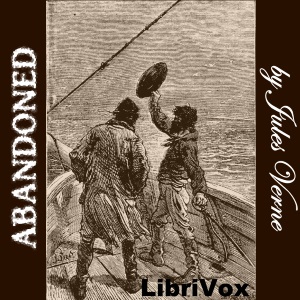
Explorers in a hot-air balloon land on an island, figuring that they must be the only inhabitants. However, they discover a bullet inside a wounded animal--one which must have been fired within the previous three months. The men propose to build a canoe so they can survey the island in search of other human life. Many adventures follow, one after another. They find a large chest filled with provisions and tools. Setting off in search of who might have left the chest, the travelers make their way through the Mercy River to the sea. During their trek, the men find remnants of the balloon they arrived in. Back at camp (Granite House) they find their ladder to the house has been removed--by invading orangutans. Soon the animals are defeated, except for one, whom they tame to become a house servant. The men construct a bridge over the river. They protect their abode by surrounding it on all sides with water. They undertake projects to make their colony habitable and comfortable. They create a hydraulic lift to replace the ladder. They build a seagoing boat for further exploration. Eventually they discover another human on Tabor Island, bringing him back to their now-well-stocked colony. (Bill Boerst)
In other translations this book is part of "The Mysterious Island"
20 episodes
Die Erzählungen Bécquers sind mehr als bloße Schauergeschichte. Der Autor erforscht die geheimen und schrecklichen Abgründe der menschlichen Seele. Unter dem oberflächlichen Spuk lauert die entsetzliche Zerstörungskraft ungezügelter Leidenschaften. Während seines kurzen Lebens hat Bécquer kaum publiziert, erst nach seinem Tod wurden seine Werke von Freunden veröffentlicht. Heute gilt er als einer der wichtigsten Dichter Spaniens. (Zusammenfassung von Hokuspokus)
18 episodes
Hans of Iceland was written in 1821 and is the very first novel written by young Victor, years before he became the great Hugo. It has all the ingredients of a gothic novel: dreadful murders by the hand of a human monster, a young hero in love with the destitute heroine, royal court-intrigues and rebellious uprising, all set in dungeons, dark towers and the untamed nature of Norway.This audio-book has been recorded as Dramatic Reading with all the voices performed by one single reader, including laughs, sobs, groans, occasional screams and a lot of growls. I hope you will enjoy listening to this adventurous journey just as much as I enjoyed recording it. - Summary by Sonia
55 episodes
An everyday tale of a young Victorian housewife who turns into a fox and the troubles her husband then has in dealing with her increasingly wild antics, that is, her essential fox nature. A unique take on the perennial tale of the troubles that must always (?) exist between a husband and wife. - Summary by Tony Addison
8 episodes
H. Rider Haggard (author of King Solomon's Mines the Allan Quatermain Series, and many more) and Andrew Lang (author of, among others, the rainbow coloured fairytale books) collaborate to lend their talent to one of the most fascinating and well known stories of all times. Odysseus returns home from the war, but does not find the peace and quiet which he craves. His home is ravaged, and his wife Penelope is dead. He comunicates with an old flame, the beautiful Helen of Troy, who sends him to his ultimate and defining last journey. Read about his adventures, and what might have been, in this beautiful novel by two of Britian's best Vctorian novelists. - Summary by Stav Nisser and Wikipedia.
28 episodes
Two London gentlemen ponder the evolution of humankind as they investigate a modern-day murder committed with an ancient tool. - Summary by Wanda White
5 episodes
Victorian-era writer Marie Corelli’s epic work Ardath, The Story of a Dead Self, is filled with supernatural and gothic themes. We meet Theos Alwyn, an atheist poet who is lost and disconsolate with life. He begins his journey by seeking out a monastery in the Caucasus mountains; his spiritual quest then takes him to the mythical field of Ardath, which becomes a door into a dream of another version of his self that transcends space and time. - Summary by Lisa Statler
40 episodes

When an Oxford undergraduate meets by chance, a mysterious stranger, during a walking tour of France, he does not know that the unusual charismatic being he has made the acquaintance of, is in fact a disguised alien being, named Aleriel.
Coming from the planet of peace, Venus, this space traveler claims to be visiting Earth for the first time.
Thus begins an unusual interplanetary friendship, that takes our Oxford graduate on an amazing adventure, first into the war-torn streets of Paris, then across the English Channel, to busy London and finally on to tranquil Oxford. Aleriel then leaves his friend and explores many parts of the earth, to discover the state of mankind and humanity, before departing in his 'ether car' for the Moon, then returning to his home planet to report all his findings to advanced beings there. Aleriel next experiences, with two Venusian companions, an perilous, exciting and illuminating tour, of the solar system, visiting first Mars, the asteroids and planetary moons and finally, mighty and mysterious Saturn and Jupiter. All this extra-terrestrial experience, Aleriel records in a fantastic journal, which arrives mysteriously at our now-married undergraduate's home.
It is an incredible story. But is it really the truth or just a very clever hoax? Our young couple travel to meet Aleriel in the mountains of Switzerland, determined to find out.
A contemporary of both Jules Verne, the fantasy Victorian novelist Edward Bulwer-Lytton, and later the futuristic writer HG Wells, This 1883 novel by Polish-English curate, author and historian: Wladislav Lach-Szyrma, is an extraordinary, futuristic and visionary tale, will entertain, enlighten and intrigue every listener. Nigel C.
33 episodes
Scheherazade oder Schehersad, die Tochter eines Wesirs, heiratete den König / Sultan, der die Angewohnheit hatte, seine Ehefrauen am ersten Tag nach der Hochzeit köpfen zu lassen. Schehersad jedoch begann ihm Geschichten zu erzählen, die am Ende der Nacht den Ausgang offen ließen und den Sultan dazu brachten, wenn er den Fortgang der Geschichte erfahren wollte, von einer Enthauptung abzusehen. Nach 1001 Nächten gestanden sich beide ihre Liebe und lebten glücklich bis...Band 4 beinhaltet viele sehr kurze Geschichten und Fabeln, die teilweise in einzelnen Abschnitten zusammengefasst werden. Gegen Ende des 4. Bandes werden die Geschichten dann wieder länger und umfassen vier bis fünf Teile. Davon sind vieles Tiergeschichten, doch auch Kalifen, Diebe, Bettler und natürlich Liebende sidn Gegenstand der vielen Geschichten und Erzählungen. Summary by Bernd Ungerer
40 episodes
Venus y Adonis es un poema de William Shakespeare, escrito en 1592-93. El argumento está basado en pasajes de las metamorfosis de Ovidio. Es un trabajo complejo y caleidoscópico que utiliza un tono y una perspectiva constantemente cambiantes, para presentar puntos de vista contrastantes sobre la naturaleza del amor.
1 episodes

Under the terms of a will, the Wildersham children have to relocate from the family house in the city to "Crossings" in the country, and to spend the first fortnight alone fending for themselves in the house. The children encounter interesting country neighbors, including ghosts and fairies. Or are they dreaming?
Walter De La Mare was a poet, and we have a number of his poems available at Librivox. This is his only play: "Crossings was produced for the first time in 1919, at the Wick School, Hove, to celebrate the coming of Peace. With the exception of one grown-up, Mr. Sebastian Sprott, its characters were taken by boys aged fourteen, or under." - Summary by ToddHW and Author
Cast list:
Mr. Charles James Wildersham: Larry Wilson
Sarah, or Sallie (his First Daughter): EmmaHatton
Frances, or France (his Second Daughter): TJ Burns
Anthony, or Tony (his Son): Tomas Peter
Ann (his Third Daughter): Campbell Schelp
Miss Agatha Wildersham (his Sister, and their Aunt, of Bayswater): Carol Pelster
Rev. Jeremy Welcome (Vicar of Little Crossings, and a friend of the children’s aunt, Susan, who is dead): Eva Davis
Miss Julia Welcome (his Sister): Availle
Josephine (their Niece): Linda Olsen Fitak
Lady Minch (of the Hall, Great Crossings): Anita Sloma-Martinez
Mr. Josiah Widge (the Cabman of Little Crossings): Scotty Smith
Mr. John Budge (the Butcher of Little Crossings): Nemo
Mrs. Budge: Nichalia Schwartz
Jemima Budge (their small Daughter, also called Pollie): TriciaG
Mr. William Honeyman (the Baker of Little Crossings): Lynette Caulkins
Mrs. Honeyman: Elsie Selwyn
Emily Honeyman (their small Daughter): Devorah Allen
The Candlestick-maker (of Nowhere): Chuck Williamson
A Beggarman (of Everywhere): Elsie Selwyn
The Queen of the Fairies: thestorygirl
Fairies, numberless and innumerable: Nichalia Schwartz
Mrs. Marshall (the family cook): Elsie Selwyn
Stage Directions and Edited By: ToddHW
5 episodes
Un jeune étudiant allemand en minéralogie, du nom d'Alexis, tombe amoureux de sa cousine Laura. Cette dernière lui préfère son ami Walter. Dédaigné par sa cousine, il entrevoit un pays merveilleux où il la retrouve pour un voyage dans le cristal, fait de cristaux géants colorés. Compris dans cette compilation charmante de la plume de George Sand sont les quatre histoires courtes "Laura", "Les charmettes", "Lettre d'un voyageur" et "Ce que dit le ruisseau". - Summary by Laurette & Sonia
9 episodes












